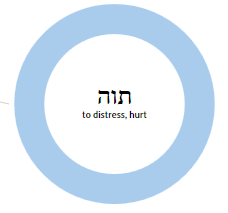
Can God be limited by humans? Do we mere humans, on earth for but a split second in comparison to eternity, limit the One Who created us all and without Whom we cannot even so much as breathe? Do we want to serve a God we can limit?
Does my wording of this question make the idea seem ludicrous?
Psalm 78:41 says, "Yea, they turned back and tempted God, and limited the Holy One of Israel."
Is that it, then? Does this mean we have the power, as created human beings, to put limits on the Living God, the One Who created us?
Does this mean the created have power over the Creator?
Not so fast.
A more in-depth study of this verse reveals the truth.
The Hebrew word used for "limited" in this verse is actually "twh." Twh means, literally, to distress or hurt. Deeper meanings include provoked, offended, vexed and wounded.
That changes everything. More accurate translations include:
"Yea, they turned back and tempted God, and distressed the Holy One of Israel."
"Yea, they turned back and tempted God, and hurt the Holy One of Israel."
"Yea, they turned back and tempted God, and provoked the Holy One of Israel."
"Yea, they turned back and tempted God, and offended the Holy One of Israel."
"Yea, they turned back and tempted God, and vexed the Holy One of Israel."
"Yea, they turned back and tempted God, and wounded the Holy One of Israel."
Not one Hebrew source listed "limited" as a viable translation of the Hebrew word "twh."
Dig more deeply into Scripture. Some things do get lost in translation. As a former translator (English to Spanish), I learned this the hard way. I'm not suggesting that God's Word can get "lost" in that He will not preserve It, I'm just suggesting that you search the Scriptures daily to see if what you are being taught is true. (Acts 17:11) In your searching, go deep.
Now you know.
~Tricia

